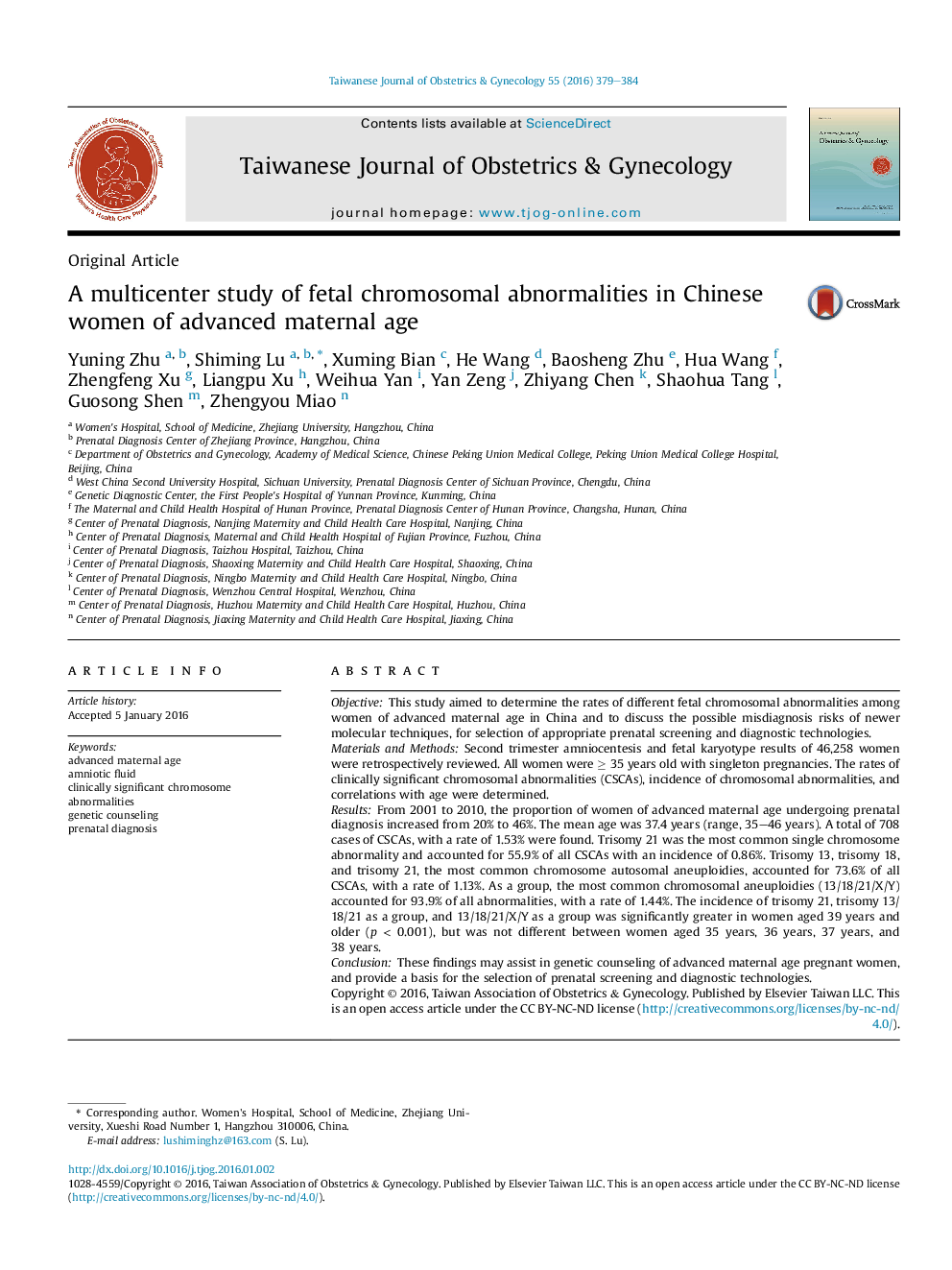| Article ID | Journal | Published Year | Pages | File Type |
|---|---|---|---|---|
| 3975164 | Taiwanese Journal of Obstetrics and Gynecology | 2016 | 6 Pages |
ObjectiveThis study aimed to determine the rates of different fetal chromosomal abnormalities among women of advanced maternal age in China and to discuss the possible misdiagnosis risks of newer molecular techniques, for selection of appropriate prenatal screening and diagnostic technologies.Materials and MethodsSecond trimester amniocentesis and fetal karyotype results of 46,258 women were retrospectively reviewed. All women were ≥ 35 years old with singleton pregnancies. The rates of clinically significant chromosomal abnormalities (CSCAs), incidence of chromosomal abnormalities, and correlations with age were determined.ResultsFrom 2001 to 2010, the proportion of women of advanced maternal age undergoing prenatal diagnosis increased from 20% to 46%. The mean age was 37.4 years (range, 35–46 years). A total of 708 cases of CSCAs, with a rate of 1.53% were found. Trisomy 21 was the most common single chromosome abnormality and accounted for 55.9% of all CSCAs with an incidence of 0.86%. Trisomy 13, trisomy 18, and trisomy 21, the most common chromosome autosomal aneuploidies, accounted for 73.6% of all CSCAs, with a rate of 1.13%. As a group, the most common chromosomal aneuploidies (13/18/21/X/Y) accounted for 93.9% of all abnormalities, with a rate of 1.44%. The incidence of trisomy 21, trisomy 13/18/21 as a group, and 13/18/21/X/Y as a group was significantly greater in women aged 39 years and older (p < 0.001), but was not different between women aged 35 years, 36 years, 37 years, and 38 years.ConclusionThese findings may assist in genetic counseling of advanced maternal age pregnant women, and provide a basis for the selection of prenatal screening and diagnostic technologies.
